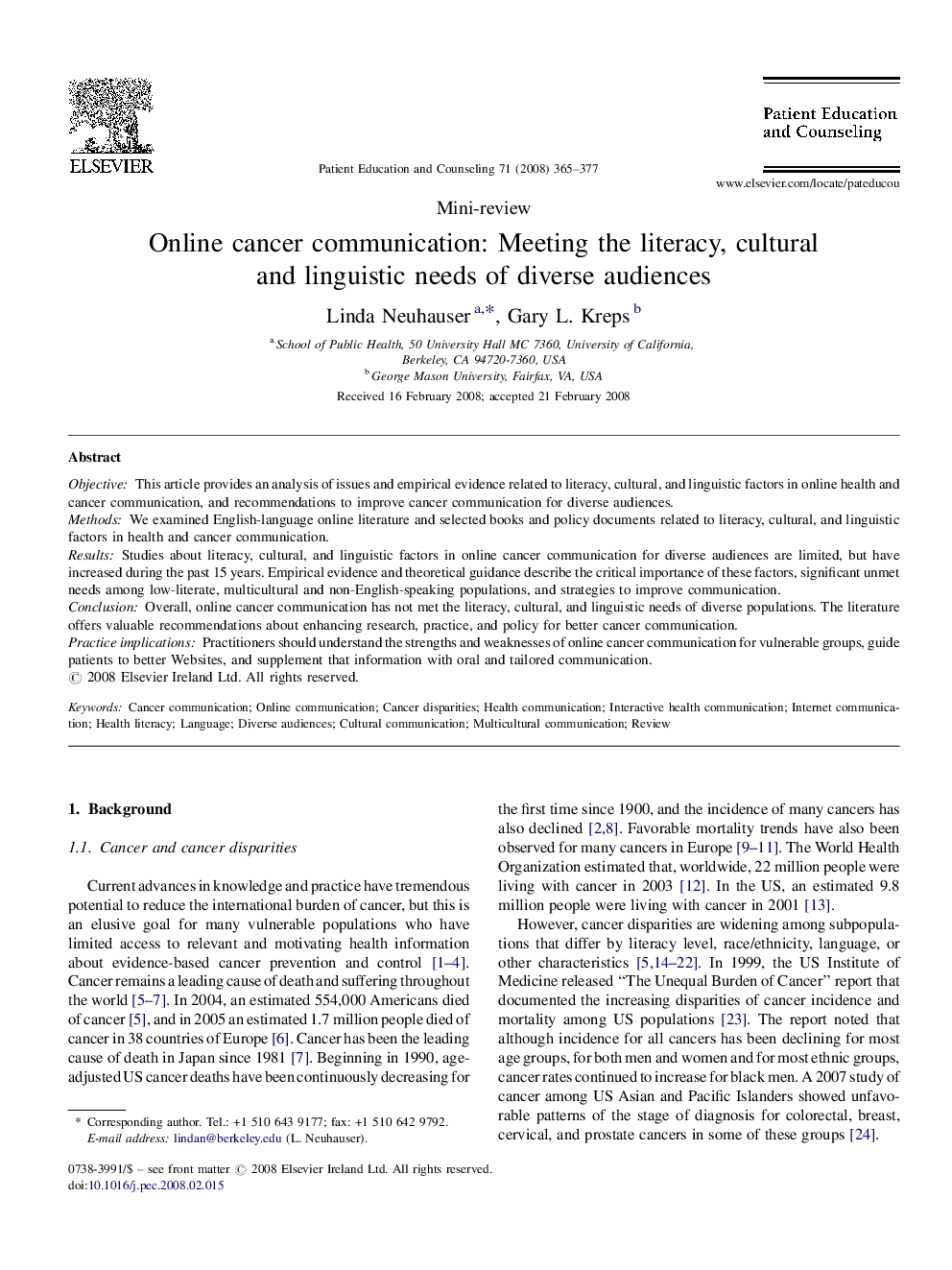| Article ID | Journal | Published Year | Pages | File Type |
|---|---|---|---|---|
| 3815990 | Patient Education and Counseling | 2008 | 13 Pages |
ObjectiveThis article provides an analysis of issues and empirical evidence related to literacy, cultural, and linguistic factors in online health and cancer communication, and recommendations to improve cancer communication for diverse audiences.MethodsWe examined English-language online literature and selected books and policy documents related to literacy, cultural, and linguistic factors in health and cancer communication.ResultsStudies about literacy, cultural, and linguistic factors in online cancer communication for diverse audiences are limited, but have increased during the past 15 years. Empirical evidence and theoretical guidance describe the critical importance of these factors, significant unmet needs among low-literate, multicultural and non-English-speaking populations, and strategies to improve communication.ConclusionOverall, online cancer communication has not met the literacy, cultural, and linguistic needs of diverse populations. The literature offers valuable recommendations about enhancing research, practice, and policy for better cancer communication.Practice implicationsPractitioners should understand the strengths and weaknesses of online cancer communication for vulnerable groups, guide patients to better Websites, and supplement that information with oral and tailored communication.
